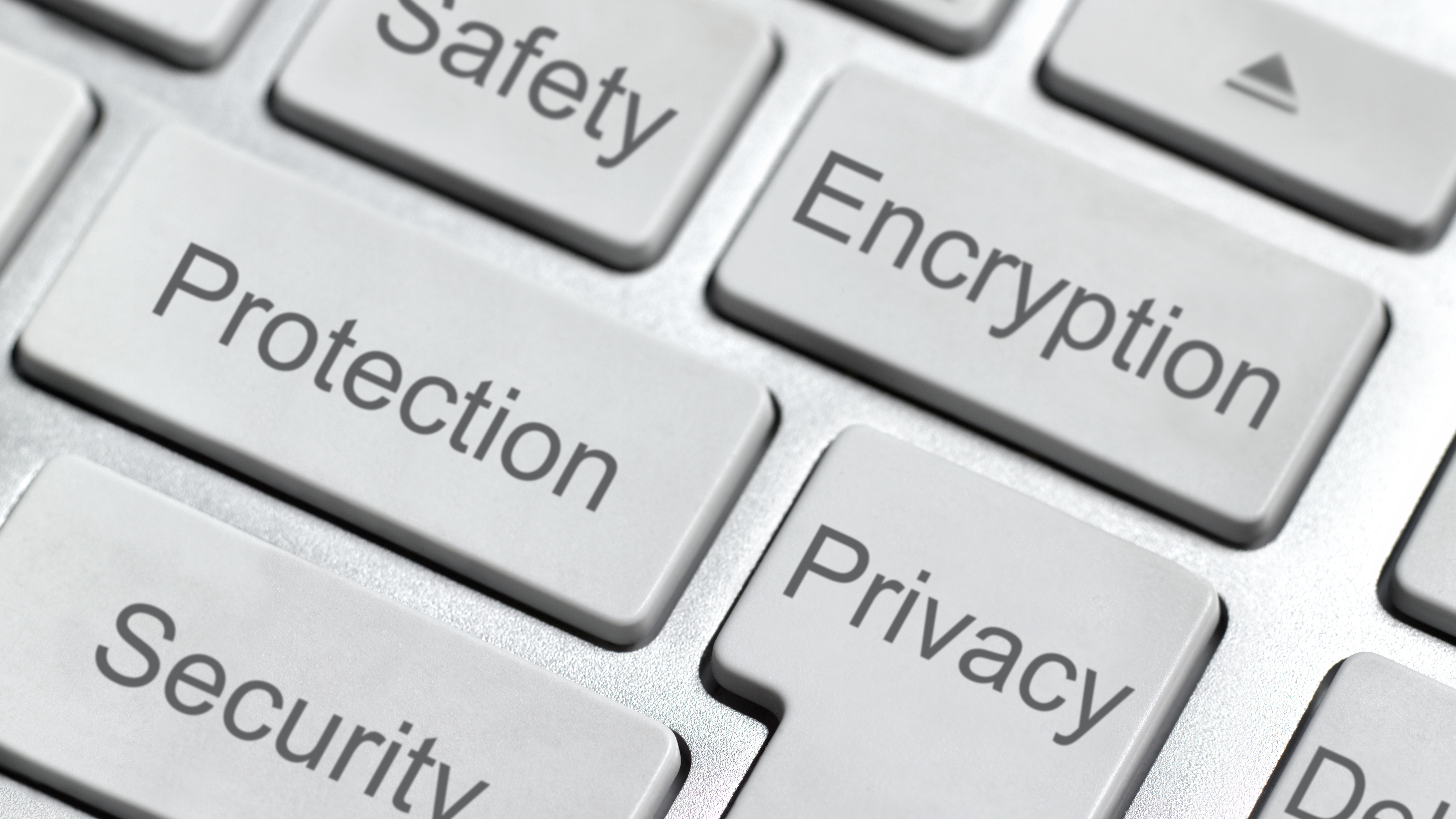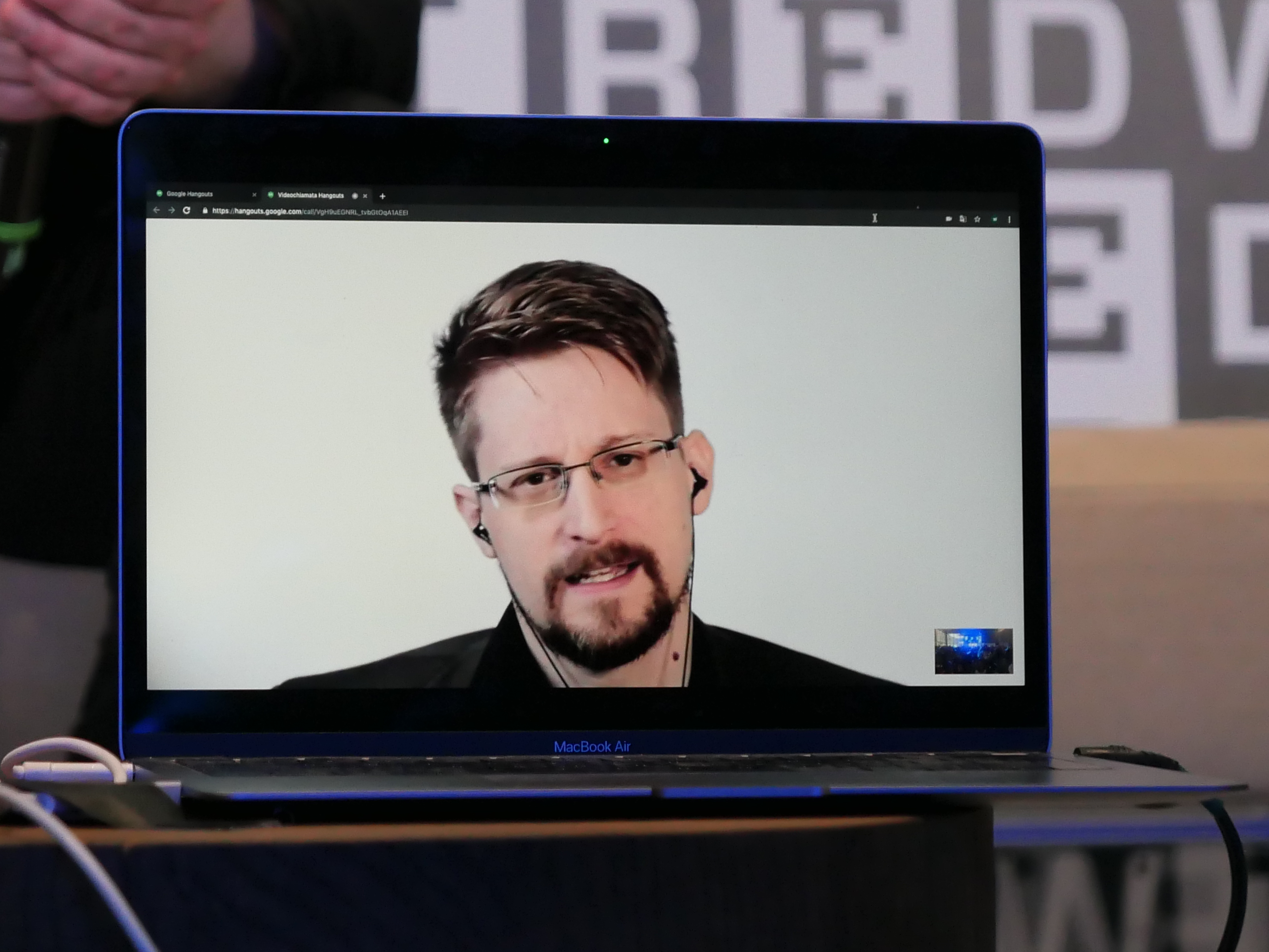
Editor's note: Johannes Drooghaag is an analyst and strategist for cybersecurity in the Netherlands and author of "The Human Element in Cyber Security." The article reflects the author's opinions, and not necessarily the views of CGTN.
The U.S. government launched a campaign called "CLEAN Network" to create a so-called "coalition of the willing" for an internet and communications network that is clean and safe. For now, that means an internet without Chinese apps and providers like WeChat, TikTok and Huawei. For now, because not so long-ago Russian companies like Kaspersky were labeled as a risk by the U.S. government and expelled from government networks. Without evidence of any wrongdoing, of course.
What does that "CLEAN Network" mean for us? The first step is already in progress by either banning Chinese apps or providers, or by forcing them to sell their business to U.S. corporations to ensure that they are under U.S. legislation. The second step is also already in progress by trying to convince or pressure allies into following this program. We have seen that play out with the pressure on European countries to ban Huawei from telecommunications networks. The U.K. for example already gave in to that pressure where countries like Germany continue to decide for themselves and do not seem to be willing to give in to U.S. pressure.
Should the U.S. be successful in creating this so-called "CLEAN Network," it will tighten its grip and control over the internet and to be able to understand what that means we need to have a closer look at what happens on the internet. There is of course the public internet as we all know it. Think for example about your favorite news sites and social media platforms. The information on these public platforms is available to everyone, except for private messages and group chats. The "CLEAN Network" power play is not about these public elements of the internet.
There is a far more important element of the internet, the private platforms and storage. Think for example about your favorite email provider. Those emails are distributed through the internet and stored somewhere in the cloud. Without special technology that hacks the email protocols or direct access through for example a backdoor, law enforcement and intelligence agencies do not have access to the emails we send and receive. And that is just one example.
There is much more private communication and data storage on the internet. Most companies use secure connections like VPN to communicate through the internet between different locations, with customers and suppliers, and now that a lot of us work from home, also with employees. Huge volumes of communication and data which is not accessible to outsiders, unless there is a way to be inside the network.
Video chat programs with encryption is another example. Even the majority of landline calls are already digitized and encrypted using internet connectivity. Your favorite cloud storage provider which conveniently backs up your device and stores all your picture so you can share them whenever you want.

Computer security consultant Edward Snowden in connection from Russia during the Wired Next Fest 2019 at the Giardini Indro Montanelli, Milan, Italy, May 26, 2019. /Getty
Computer security consultant Edward Snowden in connection from Russia during the Wired Next Fest 2019 at the Giardini Indro Montanelli, Milan, Italy, May 26, 2019. /Getty
Corporations small and large have launched the digital transformation which in most cases means that they have migrated workflows and data storage and processes to a cloud service provider and you can imagine that they do not want this too available to the public like your favorite news website, right? These private and closed networks using the internet are well protected by security protocols and encryption and a lot of what we will be building with 5G will already have these security protocols build into the technology itself. And open connection which others can intercept will soon be a thing from the past. Which is great unless you want to snoop on everyone because then you either need "the hack" or legislative powers to force access to it.
What the so-called "CLEAN Network" is all about is to reinstate the exclusive powers and rights over these private and closed networks on the internet. The U.S. already has far-reaching legislation that forces all U.S. based corporations to provide unrestricted access to law enforcement and intelligence agencies. Even when the data and platforms are stored abroad!
The Foreign Intelligence Surveillance Act (FISA) authorizes all kinds of intrusive mass surveillance and since the publications by Edward Snowden we know that these powers are used intensively after being approved in secretive court hearings. This act authorizes and sponsors a wide range of surveillance and data collection programs. PRISM, for instance, is a program under which the U.S. collects internet communications from various U.S. internet companies, and ECHELON, a surveillance program for signals intelligence /SIGINT collection and analysis network operated by the U.S.
As mentioned, the FISA act authorizes these activities and provides the huge budgets for it. This does however not cover the globalization of the internet and especially not the famous cloud where U.S. providers have started to build data centers around the world to provide fast access to their customers. To make sure that these U.S. corporations must provide unrestricted access no matter where data is stored; this U.S. administration implemented the Clarifying Lawful Overseas Use of Data Act (CLOUD Act).
Not only does the CLOUD Act force U.S. technology providers to give access to data regardless where it is stored and who it belongs to, it also restricts any effort to provide transparency about which data was tapped in to, why, when and by which agency. When your data was accessed under the CLOUD Act, you might get a notification like this real case shared by the notorious John McAfee.
The whole fuzz behind the so-called "CLEAN Network" is to allow the U.S. government to determine which legislation applies to technology and content crossing the internet. That of the U.S. of course, because it makes global intrusive mass surveillance and access lawful, and forces U.S. based corporations to collaborate. Not so long ago, the entire internet was powered by U.S. providers and technology which gave the U.S. government and its law enforcement and intelligence agencies unrestricted access to anything and everything that happened on the internet.
Nowadays, there are the "new kids on the block" like the many Chinese companies which have conquered technology and content platforms almost overnight. U.S. legislation does not apply to these rising giants and that is what the U.S. is attempting to prevent by initiatives like the "CLEAN Network". By dictating which technology providers are "CLEAN" and which service providers are authorized to provide content (TikTok under Chinese mother-company ByteDance is not allowed but TikTok under a "secure" U.S. company is ok in the words of Trump), the U.S. government also dictates which jurisdiction and legislation applies. And because encryption is a real hindrance of unrestricted access, the U.S. government is even seeking further legislative powers to force backdoors in encryption with the LAED Act.
The "CLEAN Network" program has nothing to do with cybersecurity and even less with protecting private interests. The "CLEAN Network" is solely designed to (re)gain unrestricted control over the internet and access to all data transmitted and stored. And in the process, make sure that the profits end up in U.S. corporation bank accounts which happen to prefer tax-havens in Europe to prevent paying taxes in the U.S.!
(If you want to contribute and have specific expertise, please contact us at opinions@cgtn.com.)